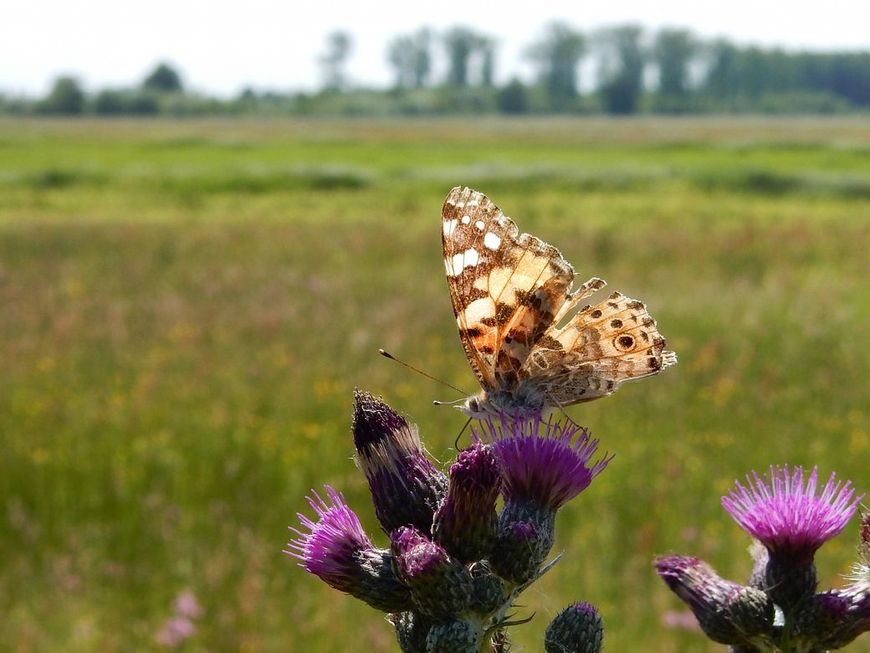EU Pollinator Initiative
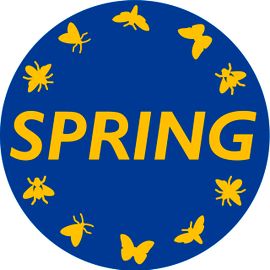
EU New Deal for Pollinators
08/07/2023
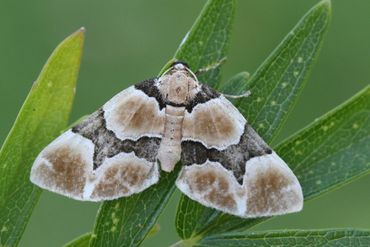
The revised EU Pollinators Initiative, a “New Deal for Pollinators”, was published on 24 Jan 2023. This aims to reverse the decline of wild pollinators in the EU and contribute to global action.
The EU biodiversity strategy for 2030, supported by the commitments in the EU Green Deal and the EU Farm to Fork Strategy, provide the context for EU Member States and the Commission’s commitments to reverse the decline in wild pollinators by 2030. The draft EU Nature Restoration Law, will make this target binding, if approved in the current trilateral negotiations between the EU Council of Ministers, the EU parliament, and the EU Commission.
On publication of the New Deal for Pollinators, BCE commented:
"BCE welcomes the publication of the revised EU Pollinators Initiative today. It is essential to the well-being of all EU citizens and to food security to reverse the decline in wild pollinators. Action to increase the contribution of both agricultural and urban areas is vital to this. We call on Member States and the EU Parliament to support the proposed EU Nature Restoration Law commitments to pollinator recovery. We call for significant investments by Member States and the EU to implement the Initiative, including reducing threats eg from pesticides and putting in place more pollinator-friendly measures on farms and in urban areas and to monitoring the outcomes for bees, moths, butterflies and hoverflies and their habitats and to secure their recovery by 2030."
The EU overview of the Pollinator Initiative states:
Objectives of the New Deal for Pollinators:
- Improving knowledge of pollinator decline, its causes and consequences
- Improving pollinator conservation and tackling the causes of declines
- Mobilising society and promoting strategic planning and cooperation at all levels
Status of the New Deal for Pollinators
The Initiative is a non-binding policy document, published by the EU Commission as a Communication, and invites the European Parliament and the Council of Ministers to endorse this new action framework and to actively engage in its implementation, in close cooperation with all relevant stakeholders. As it is a Communication it does not promise any specific new funding, referring instead, at various points, to using existing EU funds, including LIFE, CAP, Cohesion and Horizon funds.
Binding Commitment to reversing declines in wild pollinators in draft EU Nature Restoration Law
The New Deal for Pollinators refers to the binding commitments to the recovery of pollinators by 2030, contained in the proposed EU Nature Restoration Law, and to the need to finalise the EU Pollinator Monitoring methodology (EU PoMs) and carry out pollinator monitoring.
Monitoring Wild Pollinators – a crucial contribution to ensuring effective action
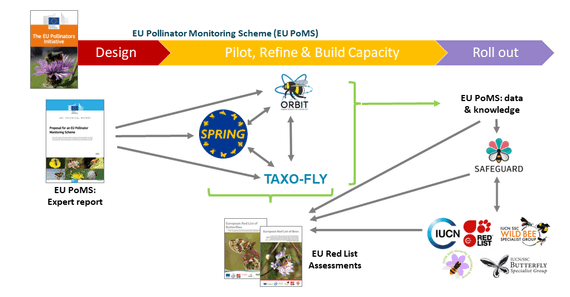
The EU PoMs monitoring methodology, covering bumble bees, solitary bees, hoverflies , moths and butterflies. is being trialled in several countries through the EU Parliamentary Preparatory Action SPRING.
SPRING – “Supporting Pollinator Recovery through Indicators and Monitoring”, is led by UFZ in Germany with the UK Centre for Ecology and Hydrology (CEH), Butterfly Conservation Europe, Butterfly Conservation (UK) and many other partners.
Monitoring schemes and Policy relevant Indicators
The SPRING project is also supporting the expansion of the long-established eBMS citizen science, volunteer monitoring of butterflies, which underpins the calculation of the EU Grassland Butterfly Indicator, which is included in the EU Dashboard for assessing progress in implementing the EU Biodiversity Strategy 2030. This indicator is also part of the EU Sustainable Development Indicator set.
This work builds on the progress made in increasing the geographical coverage of the eBMS schemes across the EU in the EU Parliamentary Project ABLE and by the end of 2023 there will be a complete network of eBMS schemes in all 27 EU Member States, as well as several across Europe, including the original scheme in the UK.
The SPRING project consortium will be sharing the lessons learned and providing recommendations to the Commission, by the end of 2023, to finalise the monitoring protocol and start to roll out pollinator monitoring across the EU.
The EU STING Expert Group is developing Pollinator Indicators, including for the Common Agriculture Policy, which will be underpinned by the standardised pollinator monitoring being developed in SPRING and the complementary eBMS butterfly monitoring.
Details of the EU Pollinator Initiative (PI) “A New Deal for Pollinators”
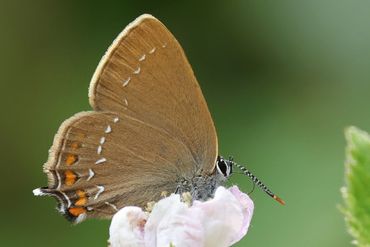
The revised PI expects EU Member States (MSs) to deploy the (to be) agreed EU Pollinator Monitoring (PoMs) methodology by 2026 and so be able to assess by 2030 whether pollinator declines (at EU and MSs levels) have been reversed. It repeats/ reinforces the need for better implementation of several existing obligations and aspirations eg, calling for MSs to use CAP Strategic Plans and measures to support pollinators and looks to future CAP reform to be more pollinator-friendly; promotes more measures in urban areas; and stresses the need for a crackdown on damaging pesticide use and toxicity, with a better assessment of effects on bees.
It has some useful new actions, which will help to support recovery of butterflies and moths, as well as wild bees and hoverflies:
- Commission and MSs to Identify and map Key Pollinator Areas (2.3)
- MSs to Increase capacity for Pollinator ID skills (taxonomy) (3.1)
- Commission and MSs to Support development of research infrastructure for improving the knowledge base (3.5)
- Commission to identify "Pollinators typical of habitats protected under the Habitats Directive" and MSs to implement appropriate measures in N2K Management Plans (4.2)
- EEA and Commission to develop a Blueprint for a network of ecological corridors for pollinators "Buzz Lines" (4.4)
- MSs to enhance capacity of Farm Advisory Services for pollinator conservation and restoration (5.3)
- Commission to promote actions to mitigate the impacts of pesticide use on pollinators (6,1 - 6.6)
- Commission Guidance on pollinator-friendly native plants and mixes (8.3)
- Identify with EEA the most vulnerable zones for pollinators in the context of climate change and promote mitigation measures (9.1)
- MSs to introduce policies to mitigate the adverse impact of light pollution – particularly important for moths (9.2)
- Commission and MSs to promote citizen science and youth engagement in monitoring and conservation of pollinators (10.2)
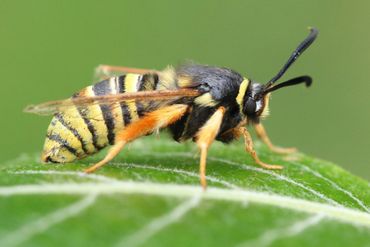
An Expert Pollinator Working Group, under the Governance of the EU Biodiversity Platform, has been set up, chaired by the EU Commission with Member States and Stakeholders, to support and drive practical implementation of the Initiative. BCE is a member of this Working Group, It has met 5 times up to the end of June 2023 and set priorities and steps to operationalise the commitments.
There is strong public support for more decisive action to reverse declines in pollinators.
For instance, the EU Citizen’s Initiative “Save Bees and Farmers!” was registered in September 2019 and gathered over 1 million signatures:
“To protect bees and people's health, we call on the Commission to propose legal acts to phase out synthetic pesticides by 2035, to restore biodiversity, and to support farmers in the transition”.
In April 2023 the EU Commission published their response:
Background
- The International Panel on Biodiversity and Ecosystems (IPBES) published an Assessment Report on Pollinators in 2016.
- In 2018 the EU issued a public consultation on developing an EU Pollinators Initiative and this drew a big response from the public. BCE, together with Buglife (The Invertebrate Conservation Trust) and other NGOs, who are members of the European Habitats Forum, published a paper, on 5 April 2018, in response , entitled “The EU Pollinators Initiative - What will success look like?”, This set out the case for positive active to reverse declines in butterflies and other wild insect pollinators with specific proposals for an effective Initiative. The full text is available here.
- On 1 June 2018, the EU Commission published a Communication (COM (2018) 395 final) setting out the first EU Pollinators Initiative. This was welcomed by the EU Parliament and supported by the EU Council of Ministers and the EU Economic and Social Committee.
- In December 2018 the French government published its Action Plan for the restoration of threatened butterflies in France.
- In September 2019 the German government BMU published their “German Action Plan for Insect Conservation” setting out plans to fund restoration action plans for wild pollinating insects in Germany.
- The EU Parliament published a Resolution on revising the Pollinators Initiative on 10 December 2019 (2019/2803(RSP)).
- In May 2021 the EU Commission published a Progress Report on the Implementation of the Initiative.
- And in Spring 2022 the EU Commission issued a public consultation on revising the Initiative, to which BCE provided a response on 9 June 2022
